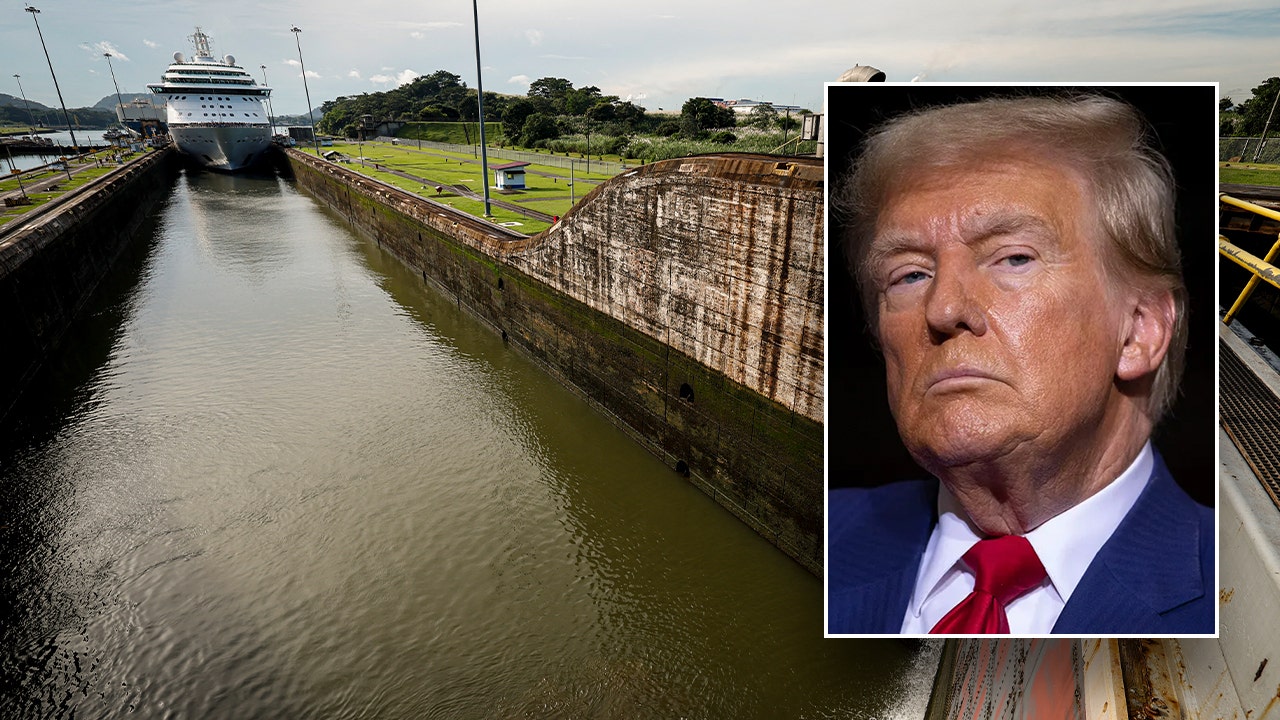Former President Donald Trump is advocating for the elimination of tolls for American military and commercial ships traversing the Panama and Suez Canals. Citing the United States’ instrumental role in the creation and safeguarding of these crucial waterways, Trump’s proposal aims to alleviate financial burdens on American companies and reinforce U.S. influence in global trade routes. This initiative sparks debate about international trade agreements, U.S. foreign policy, and the economic implications for involved nations. With potential ramifications for American businesses and international relations, Trump’s proposition merits thorough examination.
This article will delve into the key aspects of Trump’s demand, exploring the historical context of U.S. involvement in the Panama and Suez Canals, the potential economic benefits for American shippers, and the geopolitical implications of this bold proposal. Furthermore, it will examine the feasibility of implementing such a policy and the likely responses from Panama, Egypt, and other stakeholders.
Historical Significance of U.S. Involvement
The United States has a long and intertwined history with both the Panama and Suez Canals. President Theodore Roosevelt spearheaded the construction of the Panama Canal in the early 20th century, recognizing its strategic importance for global trade and military mobility. The U.S. invested significant resources and engineering expertise to complete the project, which opened in 1914 and revolutionized maritime commerce. Similarly, while the U.S. did not construct the Suez Canal, its strategic importance has long been recognized. These waterways significantly shorten shipping routes, reducing transit times and costs for American businesses.
The Hay-Bunau-Varilla Treaty granted the U.S. control over the Panama Canal Zone, which it maintained until 1999 when the canal was fully transferred to Panamanian control under the Torrijos-Carter Treaties. Despite relinquishing control, the U.S. remains a major user of the canal, with American vessels accounting for a significant portion of its traffic and revenue. This historical context forms the basis for Trump’s argument that the U.S. deserves preferential treatment, including free passage for its ships.
Potential Economic Advantages for U.S. Shippers
Trump’s proposal could yield substantial economic benefits for American shippers, including major companies in the energy, agriculture, and manufacturing sectors. Currently, commercial vessels pay hefty tolls to transit both canals. The Panama Canal, for example, can cost between $200,000 and $450,000 per crossing, while liquefied natural gas carriers may face tolls exceeding $500,000. The Suez Canal, similarly, generates billions in revenue annually from transit fees.
Eliminating these tolls for U.S. ships would translate into significant cost savings, enhancing the competitiveness of American exports and reducing the price of imported goods. These savings could be reinvested into businesses, creating jobs and stimulating economic growth. According to U.S. Department of Transportation data, U.S. vessels account for approximately 70% of total Panama Canal traffic, highlighting the potential magnitude of these financial benefits.
“American Ships, both Military and Commercial, should be allowed to travel, free of charge, through the Panama and Suez Canals! Those Canals would not exist without the United States of America.” – Donald Trump
Geopolitical Ramifications and Regional Security
Beyond the economic considerations, Trump’s push for free passage has significant geopolitical implications, particularly in light of increasing concerns about Chinese influence in Central America. The U.S. has been working to strengthen its security partnerships with Panama to safeguard the canal. Defense Secretary Pete Hegseth recently announced an expanded U.S.-Panama partnership, including provisions for U.S. warships and support vessels to move “first and free” through the waterway.
In the Middle East, the Suez Canal’s security has been threatened by regional instability, including Houthi attacks on Red Sea shipping lanes. Trump authorized military action to neutralize Houthi capabilities and protect commercial shipping, framing these strikes as part of a broader effort to counter Iranian influence. Securing free passage through the Suez Canal for U.S. ships aligns with these strategic objectives.
Challenges and Potential Obstacles
Despite the potential benefits, implementing Trump’s proposal faces several challenges. Negotiating free passage agreements with Panama and Egypt would require complex diplomatic negotiations, potentially involving economic pressure or other incentives. Both countries rely heavily on canal revenues, and any reduction in toll income could have significant budgetary consequences. Moreover, granting preferential treatment to U.S. ships could violate international trade agreements and provoke opposition from other countries.
Secretary of State Marco Rubio would face the task of navigating these diplomatic hurdles and finding mutually acceptable solutions. The feasibility of Trump’s demand hinges on the willingness of Panama and Egypt to accommodate U.S. interests and the potential for reciprocal arrangements that benefit all parties involved.
Exploring Alternative Solutions
Given the complexities and potential obstacles, alternative solutions may offer a more pragmatic approach to achieving Trump’s objectives. Instead of demanding free passage, the U.S. could negotiate discounted toll rates for American ships or explore joint investments in canal infrastructure to enhance efficiency and capacity. These measures could provide economic benefits to U.S. shippers without undermining the financial viability of the Panama and Suez Canals.
Another option involves strengthening security cooperation with Panama and Egypt to ensure the safety and stability of the waterways. By working together to address security threats and improve operational efficiency, the U.S. can safeguard its strategic interests while fostering positive relations with key partners in the region.
Final Thoughts and Implications
Trump’s call for free passage of U.S. ships through the Panama and Suez Canals raises important questions about international trade, U.S. foreign policy, and the economic dynamics of global shipping routes. While the proposal could offer substantial economic benefits to American companies, it also presents significant diplomatic and logistical challenges.
Ultimately, the success of this initiative depends on the ability of the U.S. to engage in constructive dialogue with Panama and Egypt, finding mutually beneficial solutions that respect the sovereignty and economic interests of all parties involved. Whether through direct negotiations, alternative agreements, or enhanced cooperation, the U.S. must strive to secure its strategic interests while promoting stability and prosperity in these vital regions.

Leave a Reply